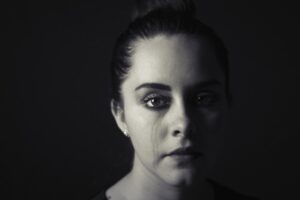What are Thought Disorders?
A thought disorder is a type of mental illness that is characterized by abnormal or dysfunctional thinking. People with thought disorders may have trouble processing information, making decisions, and communicating effectively. They may also experience delusions, hallucinations, and other types of psychotic symptoms. While thought disorders can be disabling, they are treatable with medication and psychotherapy.
Types of Thought Disorders

There are several different types of thought disorders, including:
Schizophrenia
Schizophrenia is a chronic and severe mental illness that affects how a person thinks feels, and behaves. People with schizophrenia may seem like they have lost touch with reality. They may see or hear things that others do not see or hear (hallucinations) and may believe things that are not true (delusions). Schizophrenia is a complex disorder that requires lifelong treatment.
Schizoaffective disorder
Schizoaffective disorder is a mental illness that affects a person’s thoughts, emotions, and behaviors. People with this disorder have symptoms of both schizophrenia and a mood disorder, such as depression or bipolar disorder. Schizoaffective disorder is a serious mental illness that requires lifelong treatment.
Delusional disorder
Delusional disorder is a mental illness that is characterized by delusions. A delusion is a false belief that a person holds even when there is evidence to the contrary. Delusions can be bizarre or non-bizarre. People with the delusional disorder usually do not have any other symptoms of psychosis and their functioning is not impaired. However, delusional disorder can be difficult to treat.
Brief psychotic disorder
A brief psychotic disorder is a mental illness that is characterized by psychotic symptoms that last for less than one month. Psychotic symptoms include hallucinations, delusions, and disorganized thinking. After the symptoms resolve, people with brief psychotic disorders usually return to their previous level of functioning.
Psychotic depression
Psychotic depression is a type of depression that is characterized by depressive symptoms and psychotic symptoms. Psychotic symptoms include hallucinations, delusions, and disorganized thinking. Psychotic depression is a serious mental illness that requires treatment.
Shared psychotic disorder
Shared psychotic disorder (also known as Folie à Deux) is a rare mental illness in which two people share the same delusion. The delusion is usually held by the person who has the more dominant personality in the relationship. The shared psychotic disorder usually resolves when the two people are no longer in close contact with each other.
Causes of Thought Disorders
The exact cause of thought disorders is unknown but they are believed to be caused by a combination of genetic and environmental factors. Research suggests that thought disorders may be caused by changes in brain structure or function as well as exposure to stressful life events or trauma.
Risk Factors for Thought Disorders
There are several risk factors for thought disorders, including:
-Family history: Having a family member with a thought disorder increases your risk of developing one yourself.
-Brain abnormalities: Abnormalities in certain areas of the brain have been linked to thought disorders such as schizophrenia.
-Exposure to viruses: Exposure to certain viruses during pregnancy has been linked to an increased risk of developing schizophrenia later in life.
Though they can be disabling, thought disorders are treatable conditions characterized by abnormal or dysfunctional thinking patterns. There are several different types of thought disorders which can range from mild to severe in terms of their effects on an individual’s thoughts, emotions, and behaviors; however, all types require some form of treatment in order to improve the quality of life for those affected.
If you think you may have a thought disorder, it’s important to consult with your doctor or mental health professional as soon as possible to begin developing an appropriate treatment plan for your individual needs.”





